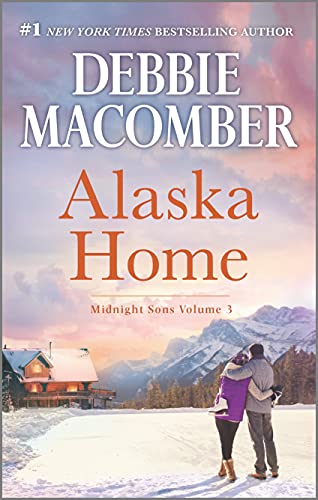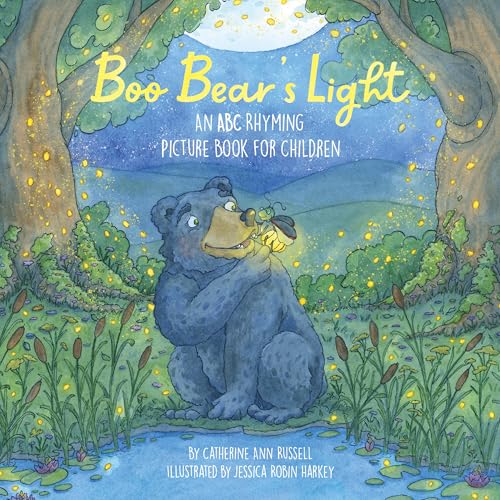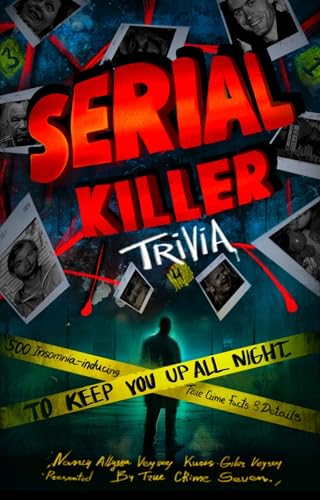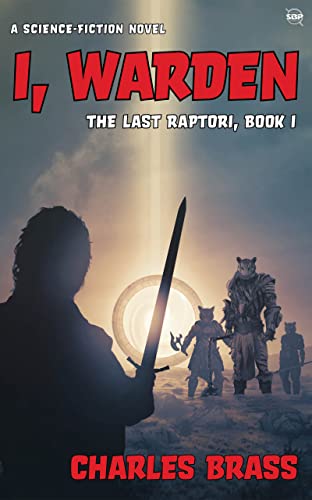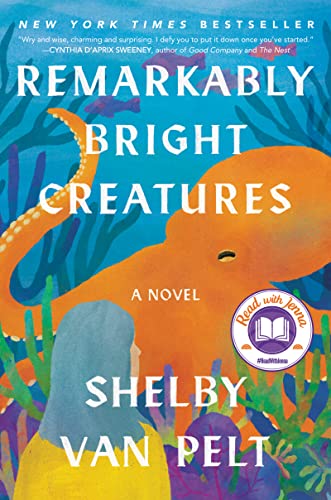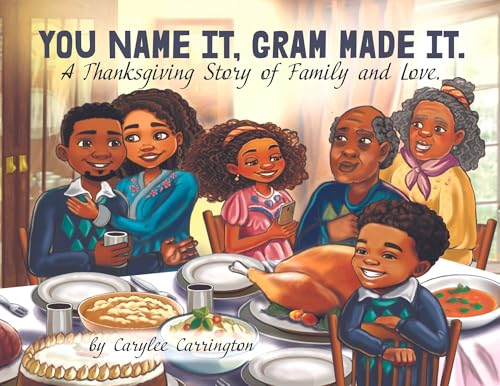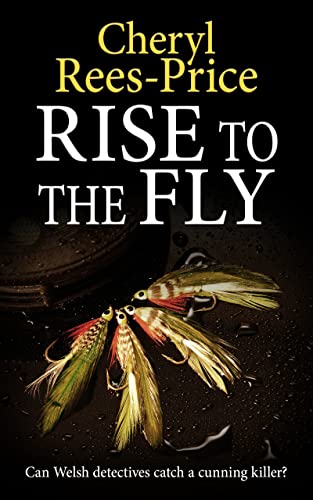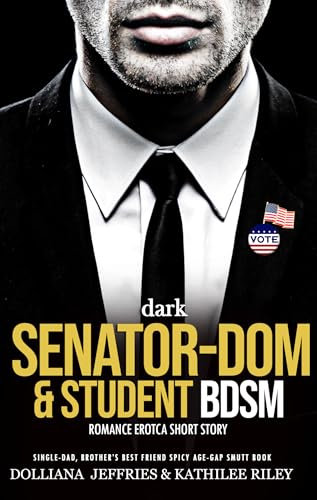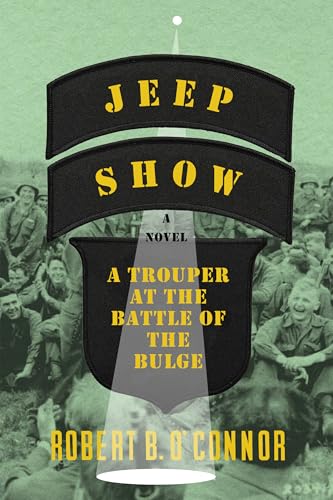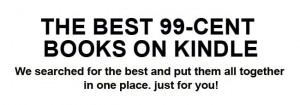“Many of us have been stuck in hotels, on planes and in convention centers and experienced much of what Peter has to say. He says it well! Simple and straightforward, Peter is making the company money while learning about love and life.”
“Really enjoyed this book and am waiting for more from this author! Entertaining, well written and leaves a lot to the imagination of what else went on in the lives of the characters.”
an excerpt from
Peter in Flight
by Paul Michael Peters
Chapter 1
Over the last six years I have shaken the hands of over a million people. After all, this simple act is the beginning of every business deal, providing the potential customer with his first and often lasting impression.
The worst handshake—number 4,528—was at the Marriott Copley Place in Boston, a hotel connected to a shopping center by a series of elevated walkways between high rises. I was at my booth in the Marriott’s exhibit hall, by the entrance (a professional trade show guy takes pride in getting the best booth placement). I had a clear line of vision to the mall.
Business on the floor was slow, and one of the attendees had decided to skip the session altogether. She had made her way to the confectionary stand just outside the exhibit hall’s door. She was tall and lanky, her black hair streaked with gray, and her belly protruded slightly; she looked more unkempt than unfit.
I can see the little drama play out in my mind as if it were happening now. She buys a half-pound of salt-water taffy, each piece wrapped in white wax paper, and the merchant puts them in a small brown paper bag. She turns and saunters back through the front door of the exhibit hall, taking a piece of taffy and shoving it into her mouth. Her chipmunk cheeks are stretched full of candy as she proceeds to walk in my direction.
I pretend I’m busy at the booth, but I’m fully aware of her every step. When she gets close enough for me to command her attention, I put my eager hand out, look her in the eye, and say, “Hello, I’m Peter. Can I tell you about my enterprise solution?”
That’s when I know that things have gone wrong. I’ve acted too soon; I haven’t read the situation correctly. Her hand moves to her mouth and she spits the well-chewed blue taffy onto her palm and hastily drops it into the brown paper bag for safekeeping. Without wiping her hand, she grasps mine firmly. My eyes are locked on hers. My fake smile is all a gleam. I must now ignore what has just taken place, and tell her all about my software to see if there’s any opportunity of a sale.
My mistake? I didn’t mirror the prospect. I should have let her lead me; I shouldn’t have acted first. That was my rookie mistake in the spring of 1996.
Needless to say, she didn’t buy the software. The company she represented didn’t even fit our customer profile, being far too small. She was kind enough to stand at my booth and watch a product demonstration for ten minutes before saying “No, thank you,” and walking away, leaving me with nothing but sticky hand. As she left, she reached into her brown paper bag to retrieve her half-chewed morsel.
As “the trade show guy,” I can tell you that my story is about one thing: developing the expertise to find the people who will buy my software on trade show floors across North America. Last year, like the four before it, I spent forty-nine weeks on the road going from one event to the next. People go to conventions, and then they browse the trade floor, which is where I shine.
I do not own a home or a car. I do not have a family. I do not have an apartment. If we met on an airplane, in a hotel lobby, or on a conference floor, I would consider us to be friends. I might not remember your name without a name badge, but I will remember your story.
If you’re considering this line of work, you should know that what I do has a rhythm that’s pretty easy to understand. Most big trade shows set up on a Saturday or Sunday and last until Thursday of the following week. So on a Sunday I take about thirty minutes to set up my retractable booth on the exhibit floor. I check my list of items for each event, which always includes the prize drawing, entry cards, several staplers, company logo pens, electricity, and a monitor for the software demonstration. Once that’s in place I make sure that the people from my company supporting the event have all checked into their hotel rooms and have their registration badges. Then I check my email. My Inbox is always full of messages: Someone missed his flight; someone can’t find the hotel, someone can’t locate the booth or wants to meet for dinner, or tells me there’s been a software update to the product.
Each Monday morning I make a call to Kurt, a man I trust with my life and the head of my exhibit house—the place that creates the booth in which I’ll live for the next four days. He and his team know every labor manager in every major city. When I mention the name of my exhibit house, things just seem to happen. Any success I might have in life is tied to knowing him and having him on my side.
An exhibit house is basically Santa’s workshop for trade shows and exhibits. It’s a magical place where they make things happen—they create specialized exhibits as well as store and ship exhibits. The front office has graphic designers, architects, and logistics experts. Dreams are realized here with paint, planning, and a few nails. In the adjacent building is a humidity- and temperature-controlled storage facility where all the exhibits not in use dream of the next big event.
Kurt happens to work at the most well-known of these businesses, one with two locations—one in Las Vegas (LAS) and the other adjacent to O’Hare (ORD). Kurt works in Chicago.
Our Monday morning call will go something like this.
“How’s the road treating you this week?” Kurt will ask.
“There is no life better,” I’ll respond.
“I see you’re in MCO this week and LAS next.” He always uses airport codes. “Orange County is doing a dock cleaning this week with the Fire Marshal, so we’re going to store property number 2 off-site.”
MCO is the code for Orlando, Florida, and Kurt’s referring to the Orange County Convention Center. In the real heat of central Florida, the empty cases and boxes we litter the place with could be a fire hazard, so the local official will do a walk-through to make sure things are safe. This is preceded by a courtesy call letting the convention center know he’s coming out—hence, Kurt knows he’s planning a visit. My “property” is the booth. In this case, booth number 2.
I have five properties that rotate with me depending on the size of the event and where I am. Three of the booths are the standard 10×10 and two are table-tops—small displays that fit on top of any standard hotel table. The three 10x10s can be reconfigured into one big booth when needed for those really big shows. The table-tops will join me at any event with two hundred registrants or less.
After Kurt and I are done with our Monday call, I speak with my boss Tatiana. Hers is the best handshake I’ve ever shared. She is my number one.
During my first phone interview, we just clicked. She was firm but fair, our language was similar, her voice melodious. Of course I was happy to meet with her. The first thing I noticed were her green eyes, soft and inviting. Her skin was pale and youthful, her hair dark, straight, and cut above the shoulder, and, in a certain light, brown highlights could be seen. Her lips were thin and provided a perfect balance to high cheek bones and the line of her chin. However, these were not what won me over. When we shook hands, there was a spark. I’ve tried to explain it as a static shock from the dry air and new carpeting, but who really knows the truth? Her fragrance filled my head like an intoxicating potion that sweetly burned my tongue on its way to my heart. My first thoughts on meeting her were “What am I in for?” I don’t remember a thing about the interview outside of her. Yet, she still hired me.
Two weeks later I was going through orientation and found that my desk was located just outside her office. Each time she passed I was distracted by that tantalizing fragrance. From eight feet away I could hear the slippery fabric of her clothes move or the click of her nails on each key. On the days she wore a dress, I was lost knowing her youth had been spent perfecting ballet moves at the barre in front of a mirror.
There were, of course, barriers to our relationship. She was my boss, and thus I just couldn’t find a way to express my burning desire to be with her. When something went wrong, I couldn’t take her in my arms and tell her things would get better. Oh, and there was the small fact that she was married to this great guy and had two girls.
When I discovered that she was married with children, I fell into a funk. There was the week I stayed in bed and dropped a few pounds unintentionally. There were several days when I forgot to shave, sometimes shower. It was not the best of times.
It might have been fate that stepped in at that point. The woman who’d been handling the trade shows decided she no longer wanted to do them. When she gave notice, I jumped at the opportunity and in three months expanded the position to what it is today. It only took a single spreadsheet to prove that putting someone—me—on the road full-time could create a huge number of new named contacts for sales and elevate our company status.
My Monday calls with Tatiana often take a full hour, sometimes more. I look forward to this call each week. We talk about the office gossip, her life, her family, and eventually the marketing calendar. I’m always planning three months ahead of the current date, sometimes more. There are enough trade shows, conferences, breakfast briefings, road shows, and the annual users conferences in the software industry these days that I cannot attend them all in fifty-two weeks. Sometimes I need to double or triple up.
During the regular week I’m in the exhibit hall, shaking hands, demonstrating our product, promising a better life once they buy our software. In downtime, I’m filling out paperwork for an event later in the year or sending an email to staff about the schedule or hotel. Without the distractions of working from an office, I’d say I’m much more efficient as an employee than others. Yes, there are also times when I’m poolside, at the evening entertainment, or taking clients out to dinner and drinks, but those are also part of the job. How much fun it can be to spend three evenings a week with total strangers and their odd habits over dinner, listening to their problems and explaining how my company will solve them.
Some weeks I find myself at two to three smaller conferences rather than one large one. The table-top displays are set up in ten minutes, and while there are fewer hands to shake, there’s just as much potential to sell. Combined smaller events make up most of my year and provide a higher quality of return to my software company.
I like to believe that Tatiana is concerned about me—that she worries about my well being and may even think about me after hours. There might be these moments, just after the lights go off, late at night when the kids are asleep and she’s in bed with her husband, that she mentions me. “I’m worried about Peter,” she might say. Often at this point in my fantasy the turbulence in the plane rumbles me awake or the early morning complimentary paper delivery to my hotel door will stir me back to reality. I am alone in the world. Just like many of you, I am my only savior, my only hero. Love is a luxury I cannot afford.
Chapter 2
Enterprise software, the line of product for which I am Comp-U-Soft’s ambassador, is a combination of database management, calculations, and reporting. There are eighty-four companies that I compete with. Each of them, in one way or another, fills the needs of growing organizations with disparate data systems. As companies grow, many come to realize that they have picked up multiple software systems that make the organization run. Finance has one system, HR has another, and sales has a third.
Enterprise software offers the ability to take these separate departmental systems and tie them together. How? Well, they add a single database that several of them feed into. This central source of data allows executive and management teams to gather comprehensive information and run executive summaries. Some of these systems will roll the application out to lower levels of users to add data into the system. It’s where calculations can be made, business forecasts built, and reports can be sent to the Security and Exchange Commission (SEC).
Hence, I can say to people at my booth, “Our software helps you bridge the business gaps you are currently experiencing.” I can show them my cool reporting tool and ask, “Wouldn’t you like to know if this sort of thing is happening in your company?” Certain types of reports can really seduce a CFO or CEO. They want to be able to drive the business as if it were a car, so these reports are called a dashboard. You can tell when things are heating up, going fast, moving slow, or have come to a complete stop. It also lets you see the road ahead with predictive analytics. For example, if I am at point A, and I do this, I can get to points B and C. But if this were to happen (God forbid) I would be a point J or K.
I can’t speak for how well the software works, but I know how I work. Two things make me great at what I do. The first is sleep. I can sleep anywhere. Many people find it difficult to get comfortable in a strange or new place. For the most part I find myself in some of the higher-end hotel chains. Event organizers are catering to senior level executives with higher standards. They can afford the two- hundred-fifty dollar room that lower level employees wouldn’t have the budget for.
Sleep is an important part of what I do. You’ll need to be at your best as an ambassador for your company, and that includes a keen mind. You can’t get good sleep if you are drunk. Alcohol, while widely glamorized as the magic elixir producing a signed agreement, is often the downfall of successful event marketers. You can decide to drink, or you can stay up late, but you cannot both stay up late and drink before your scheduled stint in the booth. Anyone naïve enough to believe that has been sent home early or lost an opportunity for the company.
The second thing that makes me great at my job is kindness. People just want to be treated well. Not better or differently, just treated well. My grandmother told me that the true sign of a gentleman is thinking of others before thinking of one’s self. For some reason, I believed her. It’s an idiom that has carried me through life. People want to be listened to, not just heard. Fortunate or not, I now know the stories of thousands of people who feel that they can open up to a stranger about the most personal of topics.
The confessions usually come at the end of a reception and start with the phrase “You seem like a pretty nice guy.” Which is true. I am a nice guy. I may be the nicest guy in the world. On any flight, you can sit next to me and tell me your tales, and I will remember them. Last November, between San Diego and San Francisco, I had to help a gentleman in his late 60’s who appeared to have slower cognitive skills zip his pants and buckle his belt after a visit to the rest room. I look at it as being part of the job.
The world in which I live, between the trade show floor and the airline seat, is filled with lonely business travelers. They’re accustomed to a staff member, spouse, or friend wherever they go. They’re looking for a buddy at the trade show, or a kind ear on a flight. What they usually get is pushing and shoving for carry-on luggage, delayed flights, overworked ticket agents, and unfamiliar territory. When they meet me, they have a friend and companion, even if only for a few short hours.
I awake early at the Grand Hyatt Atlanta in Buckhead. It’s Tuesday. My day will start at the booth, shaking the hands of senior level executives while they drink coffee and eat pastries. Once they go into session I’ll have two hours before they take a break.
During lunch I’ll sit next to one of two people I’ve been keeping my eye on since we first met during the Sunday evening reception. One is a CFO, the other a controller. Both work for companies in my target audience, both have watched the product demonstration, and one of them is going to win our prize drawing, the newly-released portable DVD player by Panasonic. Everyone else is still giving away a digital camera and is about six months behind the curve of what I’m doing (a trade show guy takes pride in having a unique and interesting prize for each event).
I end up having lunch with the controller, which is fine with me. Other people will push to get to the top person and hope for a reference downward, a decent strategy when you can pull it off. But you still need to be able to start with the person who really runs things, and a controller is a better bet for that. The CFO might give you a list of twenty people who you then need to contact. If you get to the right one first and win them over, then maybe you’ve made a sale. On the other hand, the controller might be the right person straight off the bat.
After lunch there’s another series of sessions and, when I check my voice mail, I find there’s a message from Tatiana. Her voice is mellifluous and warms my heart as she tells me about one of our executives who’s speaking next week at a conference. Even the most competent executive needs to be watched over. There are tasks that either evade or exceed their comprehension. The four emails I’ve sent him earlier are no longer at the top of his mailbox, so I’ll send a new one for clarification.
Often, the senior executive develops a conflict in his schedule and can no longer be available to speak. I’m then called on to present on his behalf. So while I’m not a regular speaker on the circuit, roughly twice a month I present on a topic I know little about. The first time this happened I’m sure several people asked for a conference refund. By now I am one of the highest-scored speakers on evaluations.
Back in my room I connect to the telephone and hear the connection signal letting me know I can turn on my email. I hope for the day when this is a faster process as it only takes seconds for me to find the email in question and forward it.
There is also a note from Tatiana hoping I am well and safe, and reminding me to call her when I have the chance to talk about our user conference.
Aside from my duties as the ambassador of software, I am also responsible for the coordination of a third of the program at the annual Comp-U-Soft Users Conference. This is the 10th anniversary of bringing all of our customers to one location to feed them, educate them, and make them feel loyal, grateful, and beholden to us. We are only expecting six hundred people. Two years ago the board split off a segment of the product that specialized in retail software. This also reduced the number of customers by two-thirds.
Tatiana and I will arrive in Orlando on that Friday, and I look forward to our time together. In the afternoon, we’ll meet with the hotel’s convention planner and walk through the details of what they call a “BEO” (or banquet event order) as well as work out any last minute changes with vendors. This will be followed by dinner and conversation long into the night. Then back to reality in the morning when the other members of our team arrive for set-up and I have to share Tatiana with the rest of the world again.
Chapter 3
My 11:35 AM flight from ATL to SAN is on schedule. ATL, Atlanta’s Hartsfield airport, is the largest and busiest in North America and competes annually with London’s Heathrow for busiest in the world. SAN, or San Diego is mid-sized but not busy. It’s a very relaxed and welcoming environment.
Atlanta is actually where things started for me. When I was eight, my mother was dating a man—a pretty good guy I guess—who also had a young son. The two of them loved Chex cereal. At the time Republic Airlines was running a promotion with Chex in which you could turn in box tops for a plane ticket.
Maybe he was thinking of asking my mother to marry him and wanted to see if the two of us would get along. Anyway he exchanged Chex box tops for a ticket to Atlanta where I joined him for a week. Sitting in the executive lounge, reflecting on this story, I have to say those were different times in America. No one in her right mind today would send her eight year old off on an airplane to spend a week in a hotel with a strange man. After his meetings, we’d get something to eat, climb Stone Mountain, see local attractions. Otherwise I sat in the hotel room. I’d planned to swim, but the staff wouldn’t allow an unaccompanied child in the pool. Furthermore, the hotel was circled by a vast parking lot and back home I wasn’t allowed to cross the street.
Turner Cable was pretty new at the time, so I ended up watching the James Bond movie “For Your Eyes Only,” twice a day, every day that week. I still know the entire script by heart.
The girl in the seat next to me is blonde, in her earlier twenties, and excited. She smiles as she looks out the window at the luggage crew.
The plane fills and we get as comfortable as possible. Attendants are walking up and down the aisle with last minute pushes to overhead compartments or reminders to tighten our seatbelts.
She seems a bit worried when I look up from my book and smile.
“Hi, my name is Peter,” I calmly say.
“I’m Megan.”
“Is San Diego your final destination?”
“Yeah, my sister Annie is stationed there. She’s in the Navy.”
“That’s great. When was the last time you got to see one another?”
“Christmas.”
“And what do you do? Are you in the Navy?”
“No,” she says as if I were silly to think it. “I work in a doctor’s office.”
And with this sentence, it begins. Her nerves evaporate; she’s concentrating on the moment. I’m a nice guy who will listen, and she’d like to tell her story. Between Annie and herself, there’s a middle sister, Danielle. She and Danielle share the same parents while Annie has a different father. The three of them were raised by different adults—Danielle was raised by their father, Megan by their grandmother, and Annie was raised by her mother.
Megan is a single mom who still dates her baby’s father, a Filipino who wants them to live with his mother in the Philippine tradition of keeping a family together under one roof. She’s been working at the doctor’s office for about eight months now and has decided to go back to school so she can be a nurse. In fact, she’s brought along some nursing books and wants to share them with me, which she does for a good hour. Unfortunately, she works for a gynecologist and the full color photos and diagrams, along with her narration, are much more than I am prepared to view on an airplane.
About an hour before the plane lands, Megan returns to the story of her life. In detail she tells me that her father was a bum who couldn’t pay a bill on time. Once her mother died, it was a difficult choice to make, but she went with her grandmother while Danielle was independent enough to live with their father. Only in the last two years had the three sisters begun to grow closer, after the birth of Megan’s son. Annie and Danielle wanted to be good aunts. The photos from her purse prove how great a kid he is.
After the plane lands, as I gather my things and make my way up the bridge to the gate, she calls for me to slow down. She explains that someone is going to meet her in baggage, but she needs to find the right carousel. I point my new friend in the proper direction, tell her to look for the signs, and politely say it’s been a long trip and I need to wash my hands.
Eight minutes later when I emerge from the men’s room she’s standing like a lost puppy by a trash can just outside. “Where were you?” she scolds.
“I was in the men’s room, like I said.”
“Well let’s go, I don’t want to miss my ride.”
“You’re going to be okay.”
I escort her to the baggage claim at the bottom of the escalator and help her grab her bags. We walk over to the circle where cars pick up passengers who have just arrived. Within seconds of stepping outside she becomes worried again; this new experience is more than she bargained for.
I write my cell number on the back of my business card and tell her, “Listen, your ride’s going to be here. It’s just going to take a second for you two to connect. But if you don’t see your ride in an hour, just call my cell phone. I’ll come get you; we’ll figure this out. My hotel is five minutes away.”
She seems relieved by this. Still, I stand with her to make certain she’s going to be okay. After ten minutes, a very fit and confident woman calls Megan’s name; it’s Annie.
Megan acts as if she’s been rescued from prison. “Annie, this is Peter. He was on the flight with me. Peter, this is my sister Annie.”
“Hi, Peter,” Annie says.
I shake hands with number 1,000,428. “Pleasure to meet you.”
“Thanks for waiting with Megan; she can get turned around.”
“My pleasure. I should thank Megan for keeping me company on that long flight.” I turn to her. “I hope you complete school as you plan to.”
“I will, Peter.”
The two sisters, now reunited, hug and are off for their adventures. I am alone once more and get in the taxi line. Within minutes I’m at my hotel, checked in, unpacked, and ready for the next conference.
… Continued…
Download the entire book now to continue reading on Kindle!

